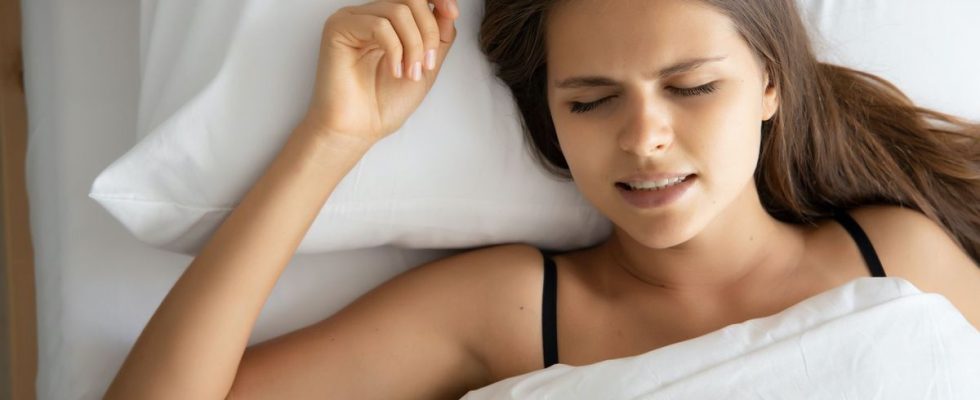Published on
Updated
Reading 2 min.
in collaboration with
Dr Gérald Kierzek (Medical Director)
Mental health doesn’t just impact your morale or energy. According to dental surgeons, it is also the cause of a particular illness, that of clenching one’s teeth (literally) or grinding one’s teeth. This symptom called “bruxism” is exploding, especially among young people.
Do you wake up with headaches and some tension in your jaw? It is likely that you are suffering bruxism, a symptom of clenching or grinding one’s teeth. The habit is impacting more and more people according to dental surgeons. And the ambient anxiety would not have had nothing to do with it.
Grinding your teeth is not just an expression
Bruxism is not a disease, but a symptom, a reaction which consists of grinding and rubbing one’s teeth strongly, without necessarily realizing it. People suffering from nocturnal bruxism are not aware of it and are often alerted by the person who shares their bed. “Most cases are nocturnal and occur during the recovery phase. paradoxical sleep which makes the phenomenon uncontrollable”specifies Christophe Lequart, dental surgeon and spokesperson for the French Union for Oral Health (UFSBD) in 20 Minutes.
However, the problem is not only the noise generated which can annoy your neighbor: bruxism can also damage your mouth and jaw.
“This grinding has consequences, pain in the masseters in particular, wear of the teeth, increased sensitivity… This is not trivial” reacts Dr Gérald Kierzek, medical director of Doctissimo.
A habit linked to anxiety?
If bruxism is nothing new, its increase would however be notable. We are talking about 10% of the population affected, but according to dentists, consultations for this reason have exploded since Covid, particularly among young patients.
An increase which is partly explained by the fact that the term is now better known, but not only that. “The society in which we live is particularly stressful and we know that anxiety is the main cause”, underlines Christophe Lequart. Thus the anxiety-provoking environment would be at the origin of this increase in cases: emotions that do not pass during the day would be expressed at night by clenching the jaws.
Sandy Cohen, doctor of dental surgery, tells 20 minutes that she asks her patients to complete a medical questionnaire: “I find that I have many more patients taking antidepressants than before.”
“Stress and anxiety inevitably increase tension” confirms Dr. Kierzek. “But you should not hesitate to consult to check what could be the cause. Bruxism can also occur in dental occlusion or in sleep disorders linked toSleep ApneaFor example”
Taking care of your teeth…and your head
There is no cure for bruxism. However, solutions exist to prevent it from causing too much damage. “A visit to the dentist is necessary. We can also consider the installation of a gutter, to relieve the patient.” reminds our expert.
But this must often go hand in hand with stress management work to release tension. This can involve relaxation, yoga, meditation or even consulting a therapist if the cause of the anxiety is difficult to resolve. But the work seems necessary to no longer grit one’s teeth.
